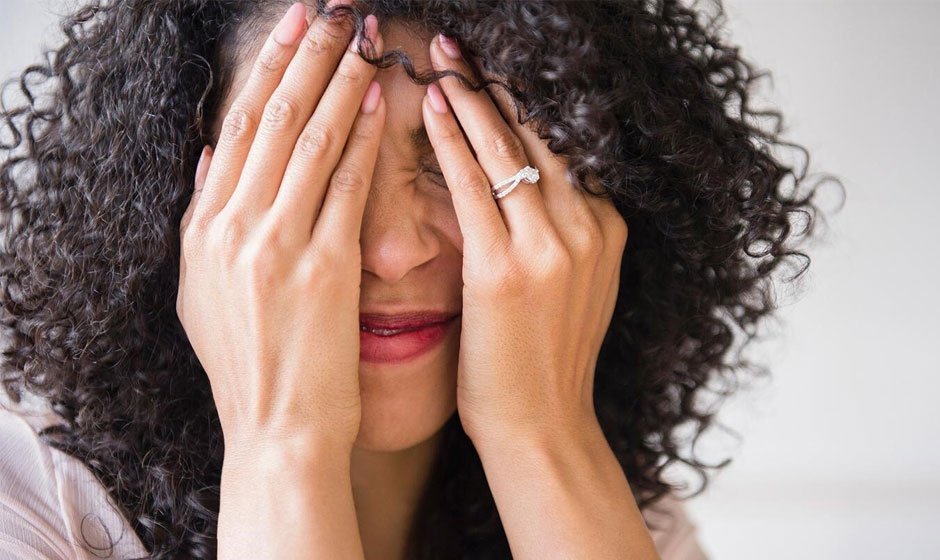Strategies to Overcome Panic Attacks

According to recent reports, as many as 11% of adults in the US have experienced a panic attack and over 2% struggle with a panic disorder. Panic attacks can leave people feeling nauseated, sweating, dizzy, and struggling to breathe. Of course, the most concerning aspect of panic attacks is that they could happen at any time, which is why knowing what they are and how to deal with them is so important. You could help a friend or loved one if they are struggling with a panic attack or even use strategies like mindfulness to calm yourself down.
What is a Panic Attack?
A panic attack refers to a sudden surge of fear, anxiety, or panic that causes serious emotional and physical distress. It can lead to a much faster heart rate, breathlessness, and uncontrollable sweating. People who are experiencing a panic attack will often report severe chest pain or feel like they are having a stroke.
What Causes Panic Attacks?
Panic attacks can be difficult to understand as they can happen due to specific triggers or seemingly for no reason. For some people, being in social situations such as weddings, parties, or other events can lead to panic attacks. It is also possible that dealing with conflict or speaking in public situations can trigger an attack.
Physical or psychological triggers also exist for panic disorders, such as some medications or controlled substances. More specifically, hallucinatory substances are especially likely to cause a panic attack as a result of a bad trip. Furthermore, suffering from anxiety or having a panic disorder can also cause panic disorders.
How Can You Overcome Panic Attacks?
Even though panic attacks can leave people feeling overwhelmed, there are ways that you can effectively overcome panic attacks. From medication to simple mindfulness techniques, there are ways that you can calm down and try to reduce the effects of the symptoms. Some of these include:
Use Deep Breathing
The first thing that you can do when suffering from a panic attack is to control your breathing. During a panic attack, people often report a tightness in their chest. This tightness can force you to take shallow breaths, which can make the feelings of fear and anxiety much worse.
Studies show that deep breathing is not just a good way to calm yourself while having a panic attack, but it can also reduce the severity of any future symptoms that people face. Try breathing from your diaphragm while counting to 4 during the inhale and the exhale.
Practice Mindfulness
Mindfulness is an effective way to overcome panic attacks induced by memories of traumatic experiences. It can also be helpful when a particular person or object is the cause of your stress. Mindfulness emphasizes turning away from objects of stress and focusing on other objects in the present. You can either try to look at an object and focus on it for some time or close your eyes and focus on the sounds in your vicinity as a way of handling panic attacks.
Another popular mindfulness technique can include visually searching for objects in your vicinity that are blue or counting backward by 7 from 100. Studies show that mindfulness and other grounding techniques can help deal with panic attacks in the short and long term.
Avoid Reaching for Alcohol, Cigarettes, and Caffeine
It is common for people struggling with panic disorders to rely on alcohol, nicotine, or caffeine to deal with their symptoms. Caffeine is a bad choice when coping with panic attacks, as it can make you more alert and make episodes last much longer. On the other hand, alcohol and nicotine can make you feel calmer initially but will eventually lead to jittering.
Furthermore, relying on alcohol or nicotine to help with panic attacks can also lead to a substance abuse disorder. It also does not help that all of these three things can also make you more susceptible to panic attacks in the future.
Try Progressive Relaxation
A panic attack can often lead to your body becoming tense. This immobilizing feeling can stay even with slow breathing, so you should instead try progressive relaxation. Try tensing one muscle at a time and then relaxing it. Start with your hands and arms, and then work your way down to your legs and feet. It also allows you to focus on something other than the thing that is causing you stress.
Seek Counseling
Journal reviews and studies all conclude that therapy, specifically mindfulness and CBT, are the most effective ways to help people overcome their panic disorders. Along with successfully reducing the frequency at which individuals experience panic attacks, it also better prepares them on how to deal with the feelings associated with such an episode.
One of the core pillars of CBT is therapists exposing you to objects or other triggering stimuli to induce a panic attack. From there, they will help you through the steps of overcoming this episode. Therapists have also helped individuals come to terms with traumatic experiences that can trigger them, slowly removing the stimuli that cause stress.
Consider Residential Treatment Programs
Finally, one of the most effective ways that you can effectively overcome panic attacks is through residential treatment programs. These programs help individuals struggling with panic disorders to focus on their physical and spiritual needs, along with their psychological needs. By surrounding themselves with a more positive environment and receiving counseling on a daily basis, individuals are less likely to suffer from a panic attack. And even if they do have one, regular therapy sessions will allow them to better handle themselves.
The program will also help individuals stay on a schedule, and will introduce regular exercise as part of their routine for a healthier body and mind.
Conclusion
Panic attacks are unfortunately common, and they can only sometimes have a specific factor that is causing them. Fortunately, you can overcome a panic attack in the moment and in the long term by practicing mindfulness and through CBT. Try not to rely on alcohol or nicotine to get over an episode, and instead, try to shift your focus by touching a nearby object, looking at an object for a little while, and controlling your breathing.



